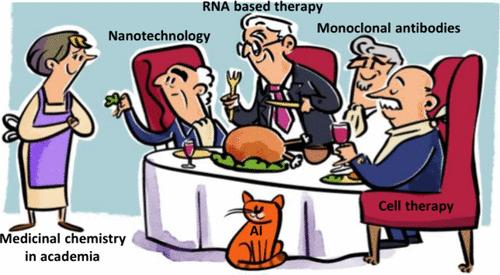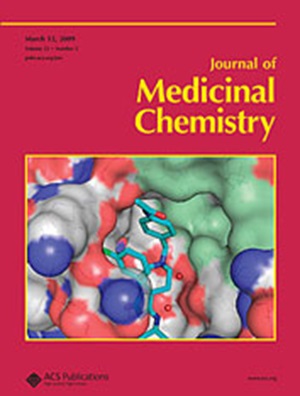学术界药物化学项目资助的最新动态评价。IUPAC第七部(化学与人类健康)进行的一项调查结果
IF 6.8
1区 医学
Q1 CHEMISTRY, MEDICINAL
引用次数: 0
摘要
过去十年(2010-2019年)从23个国家的学者那里收集的数据显示,对药物化学项目的财政支持减少了40%。这种下降在专注于小有机分子的项目中尤为明显。拨款的减少表明了一种令人不安的趋势,这种趋势可能会破坏这一关键领域的研究,从而危及未来的药物开发。资金的减少不仅影响正在进行的研究,而且还威胁到未来药物化学家的教育和培训,可能导致制药业熟练专业人员的短缺。为了抵消这一消极趋势,资助机构、制药部门和政府机构必须立即采取行动。加强财政支持对于维持药物开发的创新和确保药物化学作为一门重要的学术和实践学科的持续发展至关重要。本文章由计算机程序翻译,如有差异,请以英文原文为准。

Evaluation of the Recent Dynamics for Funding Medicinal Chemistry Projects in Academia. Results of a Survey Conducted by IUPAC Division VII (Chemistry and Human Health)
Data collected from scholars across twenty-three countries over the past decade (2010–2019) reveals a 40% decrease in financial support for medicinal chemistry projects. The decline is especially notable among projects focused on small organic molecules. This drop in grants indicates a troubling trend that could jeopardize future drug development by undermining research in this crucial field. The reduction in funding not only affects ongoing research but also threatens the education and training of future medicinal chemists, potentially leading to a shortage of skilled professionals in the pharmaceutical industry. To counteract this negative trend, it is imperative for funding agencies, the pharmaceutical sector, and government bodies to take immediate action. Strengthening financial support is essential to sustain innovation in drug development and ensure the continued advancement of medicinal chemistry as a vital academic and practical discipline.
求助全文
通过发布文献求助,成功后即可免费获取论文全文。
去求助
来源期刊

Journal of Medicinal Chemistry
医学-医药化学
CiteScore
4.00
自引率
11.00%
发文量
804
审稿时长
1.9 months
期刊介绍:
The Journal of Medicinal Chemistry is a prestigious biweekly peer-reviewed publication that focuses on the multifaceted field of medicinal chemistry. Since its inception in 1959 as the Journal of Medicinal and Pharmaceutical Chemistry, it has evolved to become a cornerstone in the dissemination of research findings related to the design, synthesis, and development of therapeutic agents.
The Journal of Medicinal Chemistry is recognized for its significant impact in the scientific community, as evidenced by its 2022 impact factor of 7.3. This metric reflects the journal's influence and the importance of its content in shaping the future of drug discovery and development. The journal serves as a vital resource for chemists, pharmacologists, and other researchers interested in the molecular mechanisms of drug action and the optimization of therapeutic compounds.
 求助内容:
求助内容: 应助结果提醒方式:
应助结果提醒方式:


